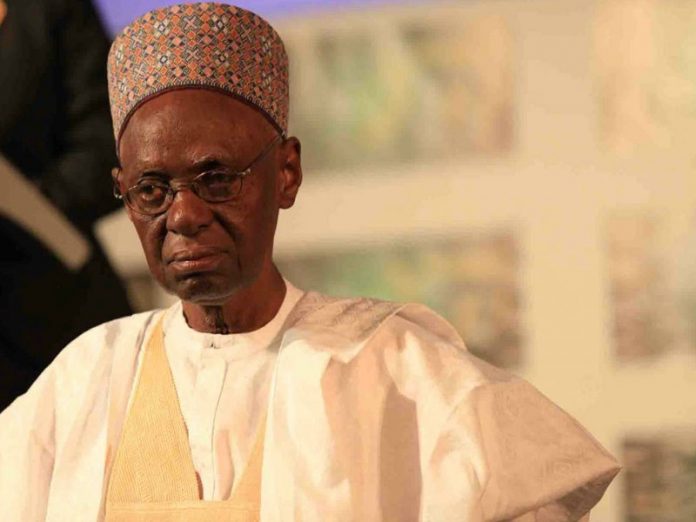By Kayode Ajulo
World over, immortalising leaders, either of thoughts, or leaders whose time wrought evocative and prosperous indicia on the face of a nation’s history is an age-long practice.
Even in democracies of example, leaders and legends are given primacy of place on the mind of the citizenry by immortalisation. Their names are etched on the face of a state for generations of citizens to meet and mark.
Nigeria is not an exception to this culture. The tradition of naming institutions after leaders, living or dead, has also lived with us for ages.
Nigerian government had immortalised past political leaders by the way of naming public institutions after them or writing their images of the country’s currencies or through other means considered appropriate.
Nigeria’s political heroes past have their names on public institutions around the geographical compartments of the country, on government institutions, either owned by the state or federal government.
From the first President of Nigeria, Late Nnamdi Azikiwe, the first Prime Minister of Nigeria, Abubakar Yafawa Balewa, to the premier leader of Opposition, Obafemi Awolowo- these fore and illustrious leaders all have their names conspicuously immortalised around the country’s spaces.
It is in this sense that the call to immortalise Nigeria’s first civilian President, Shehu Shagari, by naming the Federal University of Technology, Akure (FUTA) after him and the ensuing controversies over the plan spur intervention.
Eminent citizens have reacted differently to this theme, though the voice of Aare Afe Babalola, SAN, was particularly audible in this regard.
The ace lawyer and statesman has suggested to the Federal Government to rename the Federal University of Technology, FUTA, after the late Shagari.
Babalola’s points are that the late former President approved the citing of a Federal University of Technology in Ado Ekiti at a rally on the 11th of October 1980.
According to him, the approval of FUTA spurred the then Chief Michael Adekunle Ajasin-led UPN Government in the then Ondo state to announce the establishment of a university in Ado-Ekiti.
The veteran legal luminary and Rabi argued that late Shagari was instrumental to the establishment of the three higher institutions, which now exist in Ondo and Ekiti states.
For FUTA Community, the points raised by Afe Babalola do not add up to something. They cherish the brand FUTA and would resist any attempt to alter the naming.
The National Alumni Association of the University wants the Federal government to perish the thought of altering the school’s name, promising to vehemently resist it.
Adesomoju Olaitan, FUTA alumni President presents his own stance.
For him, the identity change would affect the fortune of the university if allowed. FUTA, to him, is an established professional brand that is globally respected for technological innovations. It has developed several domestic and international collaborations with other leading institutions.
These advances and relationship would be marred in an identity crisis by changing its established brand name on the whim of an individual.
Alumni says evidences abound on how renaming for purposes of immortalisation have done damage to institutions of higher learning than good and there is nowhere in the world that institutions of higher learning over five years old are abruptly renamed.
They argued that Harvard and Oxford have kept the same name since their creation and establishment, stressing these brands are globally respected and identifiable.
FUTA family’s position is not in error, just as the perspective of Babalola is remarkably patriotic and correct. What is true is that university families now seem to be aggregating opinions to the effect of hesitation when the theme bothers on re-naming academic institution. The other day, university of Lagos rejected the Federal Government’s proposal under the former President Goodluck Jonathan to name the institution after the late winner of 1993 Presidential election and the subject of June 12 movement. In cases where governments have had their way, some measure of the coersion were applied.
Shagari deserves the name of any institution, even that of the Federal University of Technology, Akure. The University was birthed by his signature after all.
Some other Universities around the country wear the tag of their founders; if FUTA must follow suit, good branding efforts will help whatever nominal hitches that may arise.
The University of Ife dropped its original identity for the name of its founder, Obafemi Awolowo, the first premier of Western Region, and has since retained its luster.
Shehu Aliyu Shagari is a leader Nigeria loved. He’s a national hero for whom nothing can be too big to give to immortalise. Afe Babalola gave own narrative of Shagari’s darling deeds to the South West.
His works transcend the Southwest, it litters the six geographical entities of the country, such that state governments of other compartments of the country should voluntarily announce edifices after the illustrious President.
By his death, Nigeria has lost a rare gem and an irreplaceable hero who stood and fought for the good of the majority.Our consolation is that he led a good life and above all, he left his indelible footprints on the sands of time.
He was undoubtedly a great man, an exemplar of what quality leadership should be.
.Dr. Ajulo, a lawyer writes from Abuja.













